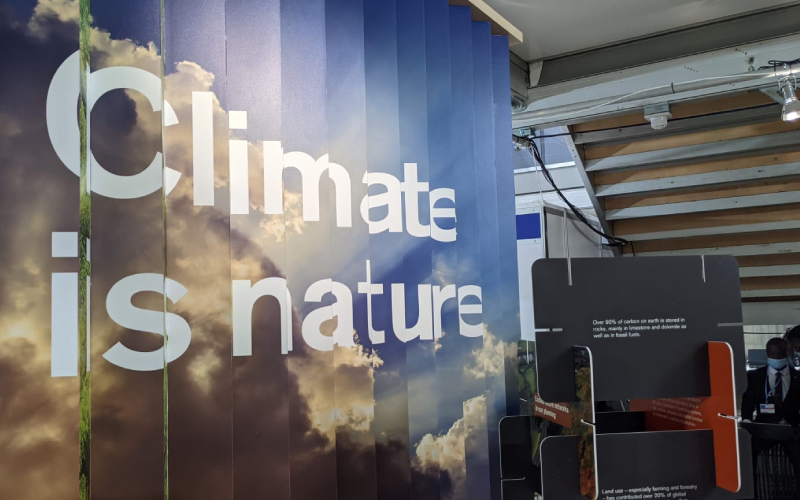You are here
- Home
- 'Climate is nature; nature is climate'
'Climate is nature; nature is climate'

COP26 has been bringing together parties from across the world to accelerate action towards the goals of the Paris Agreement and the UN Framework Convention on Climate Change. The Open University has official observer status at COP26 and is learning from the conference to inform the university’s wider sustainability mission and inspire students and staff to take action. Here are some of the conference’s highlights, as told by our Open University observers.
COP26 Diary - 31 October: Dr Clive Mitchell, Associate Lecturer.
A light day today. Remarkably short queues to get in. Several security checks to pass through, initially negative covid test, acknowledgement letter from the UN and passport; then airport security and finally on to register. All very slick.
Then into the Hydro to collect my re-usable water bottle and hygiene kit (wipes and sanitiser) – and a pass for free travel to and from the venue on all public transport.
From there, there's a thoroughfare that runs for around a mile from one end of the conference to the other. A seamless mix of existing buildings such as the SEC and temporary structures. I couldn't get into the pavilions – where countries and organisations host events – as many were still being put together.
Some meetings going on – mainly technical. The main conference seems to open on Tuesday. Even then there will be few 'moments' where it'll be key to be present. It's more about getting a feel for the mood.
'Success' might be an agreement to bring forward the next review of the NDCs to e.g. next year with clear signals on the level of ambition expected. Watch out for 'coalitions of the willing' on various aspects of the main themes – maybe even carbon border taxes. We'll see.
Found the 'bonsai landscape' – an exhibition of nature-based solutions put together by NatureScot, Royal Botanic Garden Edinburgh on behalf of environment bodies in Scotland. The headline message of 'climate is nature; nature is climate' is being well photographed. The message underpins the central role of nature – especially soils – in governing the 'fast' and 'slow' parts of the global carbon cycle, and hence climate. It can't be treated like just another 'sector' for emission reductions. We tackle both climate and nature together, or we tackle neither. Some Carbon Reduction Removal technologies present a false choice between climate and nature.
Now that I've registered, I can start to hunt out events and meetings to attend. There's an IPCC one on climate-nature literacy and a WWF one on Just Transition that look tempting…
Related articles
- Accelerating Ambition and Impact: EAUC Conference 2024 30th July 2024
- Driving change: Imagining a different transport future 23rd July 2024
- Donating items to MK Food Bank 21st July 2024
- Butterflies as indicators of our impacts on nature - Climate Perspectives 9th July 2024
- Education for Sustainable Development Changemakers 8th July 2024